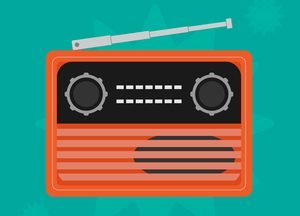
The FCC has been presented with two proposals for rule-makings involving the allowance of FM boosters & translators to originate programming separate from the primary station. Radio World reporter Paul McLane writes about two separate moves which would give both FM & AM broadcasters more flexibility regarding programming, advertising, bulletins, critical & emergency bulletins on their boosters & translators. The first is called ‘geo-targetting’ & is a method developed by Chicago technology company called GeoBroadcast Solutions. “Radio is currently the only mass medium that cannot geo-target its content,” the company stated in an announcement. “The ability to add localized weather and traffic, news, emergency alerts, and advertising is beneficial to listeners, small businesses, and advertisers and would allow the industry to progress and remain competitive in the market.” McLane continues ‘The firm makes a technology called ZoneCasting that uses FM boosters to distribute distinct content. It cited data from BIA Advisory Services and Advertiser Perceptions suggesting that advertisers would spend more money in FM radio if geo-targeting is available.’ Geo-targeting technology relies on existing receivers that are synchronized with FM booster stations and originate localized content and insert it at specific and limited times, while otherwise re-transmitting a primary station’s signal. “This technology, which would be optional for broadcasters, does not impact interference between neighboring stations and does not cause harmful self-interference.” The rule GeoBroadcast seeks to change relates to FM boosters, and no changes to the FCC’s rules regarding translators or interference are necessary. The NAB has thrown it’s support behind this proposal but cautions about potential interference that, even if confined to a station’s booster cluster, could cause listeners to change channels or reflect negatively on the FM service. GBS has said its field tests showed no “harmful interference” and that the technology can be managed to minimize disruption. The NAB continued, “We also observe potential concerns that GBS’ system currently works only with analog FM service, which could undermine the continued expansion of digital audio broadcasting (HD Radio). There may be potential disruption to HD broadcasting in the targeted zones. This issue is not addressed in the petition.” GeoBroadcast has stated it is working on implementing its system to be compatible with HD Radio. On the plus side, NAB said, “Enabling radio broadcasters to use boosters to location target announcements and other programming would benefit listeners with more relevant, tailored content, including emergency news and announcements. Geo-targeting could also open important new revenue streams for FM broadcasters in the markets for targeted advertising and smaller, local commercial advertisers.” The NAB notes that zoned broadcasting may facilitate radio advertising by businesses that were previously priced out of advertising on radio or “found that buying spots that cover an entire radio market was not financially sensible.” Four of radio’s largest group owners and Xperi, the developer and license holder of digital radio technology, are urging the Federal Communications Commission to take a more cautious approach as it considers whether to allow broadcasters to deploy FM boosters to create zoned, geo-targeted broadcasts. They argue what’s branded as ZoneCasting remains largely unproven technology and worry a widespread deployment could create unintended negative consequences for the industry.

Paul McLane of Radio World also notes that a second proposal by a consortium of two dozen broadcast properties would like to have the FCC consider an expanded allowance of original programming on FM boosters & translators. The group of licensees, under the joint name “Broadcasters for Limited Program Origination,” told the FCC in a filing that “to serve the public interest with increased program diversity,” both FM boosters and translators should be allowed to originate programming for up to 80 hours a week. Translators and boosters currently rebroadcast only the primary station’s programming. Allowing FM translators to originate any local programming at all would be a big change, particularly now that so many stations have them in the wake of the AM revitalization effort. AM stations with FM translators would be included under the proposal. The group seeks a uniform FCC rule change for both FM boosters and FM translators to allow each to originate programming content provided that the primary station is re-transmitted for no fewer than 40 hours in any calendar week. The stations believe the FCC should not concern itself with restricting which kinds of content should be allowed. “As with FM booster stations, the FCC should not restrict FM translator licensees in their programming content decisions,” they wrote. “Some radio stations may choose to broadcast different localized advertisements. Others may broadcast localized city council meetings for two or more communities in their coverage areas. The broadcast of multiple localized high school sports games may be what serves a particular station’s listeners. Another station may broadcast two different kinds of ethnic entertainment programming at certain times of the day.” The companies also argue that, because the commission’s new translator interference rules “have redefined the coverage contours of FM stations,” the extended coverage contours out to the greater of the 45 dBμ contour or a 25-mile radius from the translator site should now apply to what is regarded as a fill-in station for the purposes of the FM translator rules. “As with FM booster stations, the FCC should not restrict FM translator licensees in their programming content decisions,” they wrote. The 24 licensees, which own 108 full-service stations and 85 FM translators involved in the filing are: Miller Communications/Kaskaskia Broadcasting; the Cromwell Group of Illinois and Hancock Communications; TBE LLC; SSR Communications; Port Broadcasting; the Fingerlakes Radio Group and Chadwick Bay Broadcasting; Blackbelt Broadcasting; Mazur LLC; The Original Company, Old Northwest Broadcasting and The Innovation Center; Virden Broadcasting; Lovcom Inc.; Genesee Media Corp.; Viper Communications; Mountain Top Media; Eastern Shore Radio; and MTN Broadcasting and Eldora Broadcasting.


Some comments may be held for moderation. (New users)